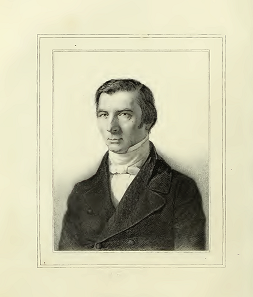Liberty Matters
Bastiat on the Island of Despair, or how Robinson Crusoe helped redefine Economics

I think one of Bastiat's greatest theoretical breakthroughs was in pushing political economy onto an entirely new foundation, namely, that of understanding "the acting, choosing individual who has limited time and resources, and competing preferences that need to be satisfied in their order of priority." (See my brief discussion above on "(1) Methodological Individualism" and footnotes 28 and 29.) To do this he had to break away from the Smithian focus on "production" and "exchange," which had also become the orthodoxy among the French political economists of Bastiat's day. True to form, Bastiat chose to do this in a literary way by telling a story he had borrowed from Daniel Defoe's novel The Life and Strange Adventures of Robinson Crusoe of York, Marriner (1719). Behind the amusing stories he concocted of Crusoe having to decide between pulling ashore a readymade plank from the shipwreck or pushing it back out to sea and trimming a tree trunk himself to make the plank (thereby maximizing the amount of labor he had to expend and thus increasing his "wealth," according to the protectionists) (ES2 14, "Something Else")[52] lies a deep and original economic theory of how and why human beings act the way they do in an economy.
Modern readers of economics do not find it strange when an economist uses thought experiments to help simplify and clarify complex economic arguments. Members of the Austrian school resort to this process as a matter of course because it helps them establish the logic of human action, which every economic actor must face when making decisions about what to produce or what to exchange. Bastiat repeatedly used the fictional figure of Robinson Crusoe, shipwrecked on his Island of Despair, in his thought experiments to show the obstacles that need to be overcome in order for Crusoe to achieve some level of prosperity, the opportunity costs of using one's time on one task rather than another, the need to deprive himself of some comforts in order to accumulate some savings, and (when Friday and visitors from other islands appear on the scene) the benefits of the division of labor and the nature of comparative advantage in trade.
Bastiat is the first economist to make extensive use of Crusoe economics to create these thought experiments to explain human action. A search in the Online Library of Liberty for references to Robinson Crusoe in works written before Bastiat in 1847 finds none in the works of Adam Smith or David Ricardo, or in J.B. Say's Treatise on Political Economy. There are only single references scattered across the writings of economists who were writing in the 1810s, 1820s, and 1830s, such as Jeremy Bentham, Jane Marcet, Thomas Babington Macaulay, Richard Whately, and Thomas Hodgskin, and none of them uses the Robinson Crusoe analogy to express serious economic ideas. Whately (1831) firmly rejected the use of Crusoe in any discussion of the nature of political economy because in his view the study of economics was the study of exchanges and, since Crusoe did not engage in exchanges, he was "in a situation of which Political-Economy takes no cognizance." Thus Bastiat's extensive use of Crusoe economics between 1847 and 1850 may well be an original contribution to economic reasoning.
That he is able to interweave fictional stories taken from literature with profound and original insights into economic theory is another clear example of Bastiat's skill and sophistication as a writer.
Hence I conclude, in opposition to Don Boudreaux, that Bastiat is largely wasted on the young and that one needs quite a few more years under the belt before he can be fully appreciated in all his richness and complexity.
Endnotes
[52] Frédéric Bastiat, Economic Sophisms, trans. Arthur Goddard, introduction by Henry Hazlitt (Irvington-on-Hudson: Foundation for Economic Education, 1996). Chapter: Second Series, Chapter 14: Something Else. </title/276/23402>.]
Copyright and Fair Use Statement
“Liberty Matters” is the copyright of Liberty Fund, Inc. This material is put on line to further the educational goals of Liberty Fund, Inc. These essays and responses may be quoted and otherwise used under “fair use” provisions for educational and academic purposes. To reprint these essays in course booklets requires the prior permission of Liberty Fund, Inc. Please contact oll@libertyfund.org if you have any questions.